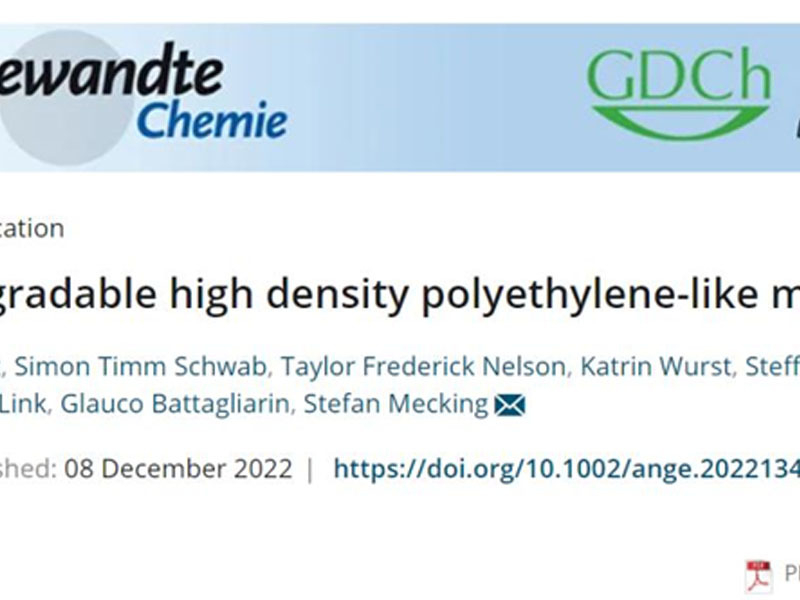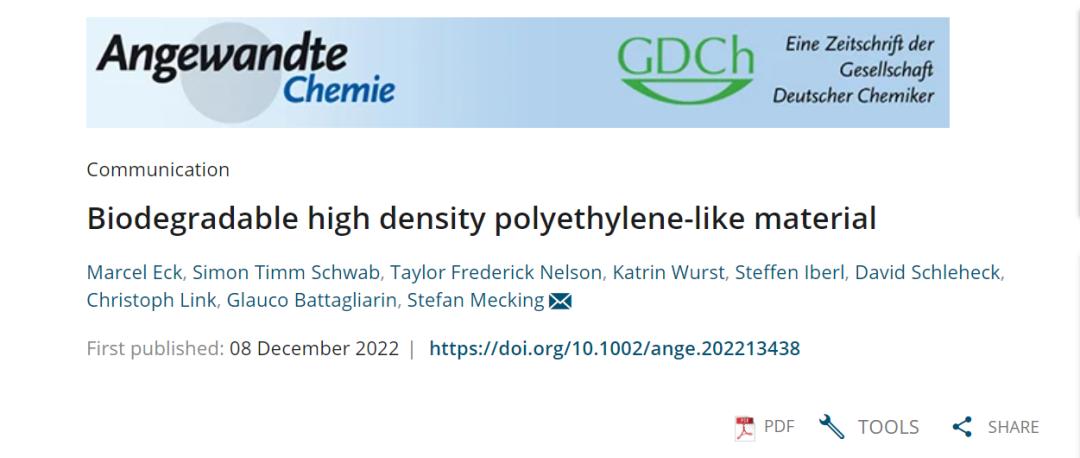The new type of plastic can biodegrade in just a few days! German chemist discovers new mystery
Published on: 2023-01-11 09:01:00

Plastic products have permeated every aspect of our lives, but plastic waste has also become one of the "culprits" that damage the environment. Recently, chemists from the University of Konstanz in Germany have developed a new plastic that has all the durability of ordinary plastics, but can biodegrade within a few months or even days.
Plastic is one of the most pressing environmental issues of our time. Due to its multifunctionality, strength, water resistance, and heat resistance, most products will use this material. However, after the end of the product's service life, these advantages become disadvantages because plastic waste can clog landfills and oceans for thousands of years before degradation, making recycling difficult.

Therefore, a large amount of research has focused on designing new types of plastics that can biodegrade faster after the work is completed. And now, the research team at the University of Konstanz has created a promising new candidate material.
It is reported that this new material is called polyester-2,18, named after the two modules that make up it - a short diol unit containing two carbon atoms and a dicarboxylic acid containing 18 carbon atoms. Although it maintains a dense crystalline structure and is durable compared to ordinary plastics such as HDPE, the team inserted a chemical "breakpoint". Enable the material to unlock its basic modules so that it can be recycled and reused.
More importantly, the team stated that the foundation of this material can be obtained from renewable resources. This research result was recently published in the journal Aanewandte Chemie.
In laboratory tests, this polyester completely decomposed within a few days. Further testing in a standard industrial composting plant using other microorganisms took about two months, which was an impressive speed. These experiments indicate that not only can these materials be intentionally decomposed, but if a portion does enter the soil or ocean, the problems it causes will also be much less.
The corresponding author of the study said: We were also surprised by this rapid degradation. Of course, we cannot transfer the results of composting sites one-to-one to any imaginable environmental conditions, but they do confirm that this material is indeed biodegradable and indicate that if it is accidentally released into the natural environment, its durability is much lower than that of high-density polyethylene and other plastics.







